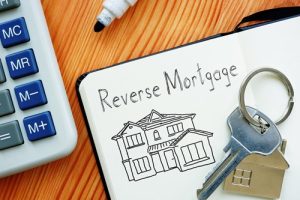
As retirement approaches, many people are concerned about how unexpected costs could impact their savings and disrupt their financial plans. A significant worry is long-term care expenses, which can add up quickly. Fortunately, there are ways to ease these financial burdens by tapping into home equity—a valuable resource that can help cover long-term care costs. A reverse mortgage offers a way for older homeowners to maintain their quality of life without needing to drain their savings.
Reverse Mortgage: The Growing Importance of Long-Term Care
It’s an undeniable reality that most individuals will eventually require long-term care. Whether it’s short-term assistance after an illness or injury or more permanent care, this need is becoming increasingly common. According to estimates, nearly 70% of people aged 65 will need some form of long-term care, with about 20% requiring care that extends beyond five years. These services, whether provided at home or in a care facility, come with a hefty price tag.
For instance, home health aides typically cost over $60,000 per year, while assisted living facilities can average more than $50,000 annually. While family members often take on caregiving duties, this can lead to considerable stress and time commitments. Additionally, Medicare doesn’t generally cover long-term care services, and private insurance policies are often too costly for many seniors.
Turning to Home Equity for Support
Given these challenges, it’s worth considering an alternative source of funding: home equity. For older homeowners, the value stored in their homes is often their most significant financial asset. Home equity can provide a practical solution for covering long-term care costs without needing to sell the property. Many homeowners prefer to remain in their homes, making home equity a valuable resource to access.
While there are several ways to unlock home equity, one of the most effective options for seniors is a reverse mortgage, also known as a Home Equity Conversion Mortgage (HECM). This type of loan allows homeowners aged 62 and over to convert a portion of their home’s value into funds they can use for any purpose, including long-term care expenses.
Reverse Mortgage: What Makes a HECM Different?
Unlike traditional mortgages, a HECM is specifically designed for older homeowners. It enables them to remain in their homes while receiving payments from their home’s equity. These payments can be structured in different ways, such as a lump sum, monthly payments, or a line of credit. Importantly, with a HECM in Myrtle Beach SC, homeowners have the flexibility to decide whether to make payments toward the loan balance, pay as little as they want, or even make no payments at all while still living in the home.
 Reverse mortgages in Myrtle Beach SC
Reverse mortgages in Myrtle Beach SCAnother critical feature of the HECM is that the loan doesn’t need to be repaid until the homeowner permanently moves out of the property, whether by moving into a care facility or passing away. Additionally, the loan is non-recourse, meaning the homeowner or their heirs will never owe more than the value of the home when it’s sold to repay the loan. Get in touch with David Stacy Reverse Mortgage Specialist for more details.
Using a HECM for Long-Term Care Costs
The funds obtained through a HECM loan can be used in several ways to help cover long-term care needs. For example, they can be used to pay for home health care services, fund nursing home deposits, or cover long-term care insurance premiums. Many people choose to establish a HECM line of credit, which grows over time and allows the homeowner to draw funds as needed. This option provides peace of mind, knowing that financial resources will be available when care is required.
Also, it’s worth noting that setting up a HECM line of credit early can be advantageous. Over time, the unused portion of the credit grows, giving the homeowner access to even more funds in the future. This growth continues regardless of changes in the housing market, ensuring that the homeowner can rely on these funds whenever they are needed.
The Impact of Medicaid Changes
For some individuals, Medicaid is a crucial part of their healthcare coverage. However, recent changes to Medicaid’s continuous coverage rules have left millions of Americans at risk of losing their benefits. As states begin reevaluating Medicaid eligibility, many people may find themselves without coverage or struggling to navigate administrative barriers. And, these changes highlight the importance of planning ahead and considering all available options, including home equity, to ensure access to care.
Reverse Mortgage: Preparing for the Future
Given the unpredictable nature of healthcare needs in retirement, it’s essential to plan ahead. Exploring all options, including home equity, can help ensure that older adults have the financial resources they need to cover long-term care costs. A reverse mortgage in Myrtle Beach SC, particularly a HECM, offers a flexible and reliable solution for many senior homeowners. Additionally, it provides access to funds without requiring the homeowner to leave their home, offering both financial stability and peace of mind.
If you’re interested in learning more about how a HECM can help with long-term care planning, reach out today for more information on the next steps. Call David Stacy Reverse Mortgage Specialist now.
David Stacy Reverse Mortgage Specialist
Myrtle Beach, SC 29577
(843) 491-1436
https://www.reverse-info.com
Reverse Mortgage Specialist
Columbia, SC 29205
843-491-1436
https://www.reverse-info.com/areas-served/columbia/
South Carolina Reverse Mortgage Services
Charleston, SC 29401
843-491-1436
https://www.reverse-info.com/
Reverse Mortgage Specialist
Greenville, SC 29607
(843) 491-1436
http://reversemortgagegreenvillesc.com/

No comments:
Post a Comment